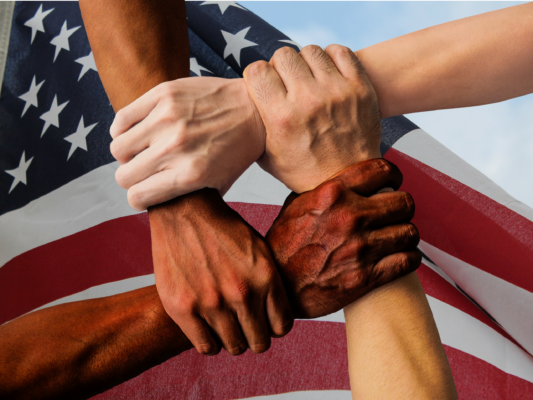I had a heated discussion with my daughter the other day about race and racism. I told her that I had recently heard a person who commented that they wished we could go back to when he was a child (the 80’s, I think). He grew up with black and white kids in his neighborhood during his childhood, and nobody noticed.
They were all friends. They played together; they went to school, and they argued. They were just kids. They didn’t “see” each other’s skin color because it didn’t define who they were.
I asked my daughter, “Wouldn’t this be nice? Wouldn’t it be nice if we could just go back to a time before all this racial division when we could all be comfortable together, not worried about offending?
Wouldn’t it be nice if we could all be color blind, making decisions about each other by the content of our character, not the color of our skin?”
This did not go over well. She claimed that you have to see the color of a person’s skin. Not doing so robs them of their culture. I was baffled by this. Didn’t a kid in my neighborhood grow up in the same culture as I did? What was the difference? How does the color of his skin change who he is or how he should be treated? Aren’t we all American? Isn’t that our culture?
When a dark-skinned person moves here from Nigeria, that would be a person from a different culture, the same as a light-skinned person who moves here from Russia, but if we’re all born here, isn’t being American our culture? Does that person from Nigeria immediately have to give up his background and be absorbed into America’s “black culture” when he moves here?
Even within America, we can have different backgrounds. I might have grown up on a farm in Indiana, in a borough of New York City, or in the tundra of Alaska, but we’re all American. We share a common culture that is unique, like popular television or music. Within those aspects of our culture, though, there are still differences. Some people from NYC may enjoy country music, and some people from a coal mining community in Appalachia may like hip-hop.
We’re all still Americans.
There are many ways that we can be different. I find that there is a “culture” around people with different interests. Folks who share these interests tend to group together and see things from a similar perspective. I may be into historic reenacting, theater, or computer programming. I will often seek out people who share these interests to enjoy their company and do the thing that we like; however, I may also be interested in other things, heading to Fenway Park to join that group of Red Sox fans that I am part of.
These interests make us individuals, creating an infinite number of personalities that are malleable, constantly changing as we grow and gain new life experiences. These characteristics are part of what makes the human race fascinating. They bring joy to life.
Vive la différence!
What strikes me is that insisting on seeing color as a defining characteristic of a person puts them in a box, and this box is one they can never escape. The characteristics that define a person are those which they choose.
People with dark skin can’t change the color of their skin, but they can change their minds about what profession they wish to pursue or whether they cheer for the Yankees or the Red Sox.
To say that a dark-skinned person who grew up in inner-city Chicago is the same as a dark-skinned person who was raised on a Texas ranch is absurd. These two individuals may share a common history. I emphasize “may” because one of them could have been the first generation born here after their grandparents immigrated from Tanzania. The other may have descended from slaves brought to America in 1849.
The color of their skin doesn’t put them within this group or that one. Their individual characteristics do that.
I am truly baffled by my daughter’s insistence on defining a person by the color of their skin. It confuses me and makes me feel sad.
Why do I have to see color?
Why is it important for me to create a division in my mind this way? Do I judge a person because they back the Canadiens instead of the Bruins? Yes, sometimes, but isn’t that what makes life fun? Isn’t the discussion between a black conservative and a white liberal what broadens the human experience and suggests new perspectives?
I look forward to a time when I can safely make decisions about a person based on their character and interests. I long for the day when kids can argue with the neighbor kid about the rules of their backyard game without having to consider the color of their skin. Don’t you?
